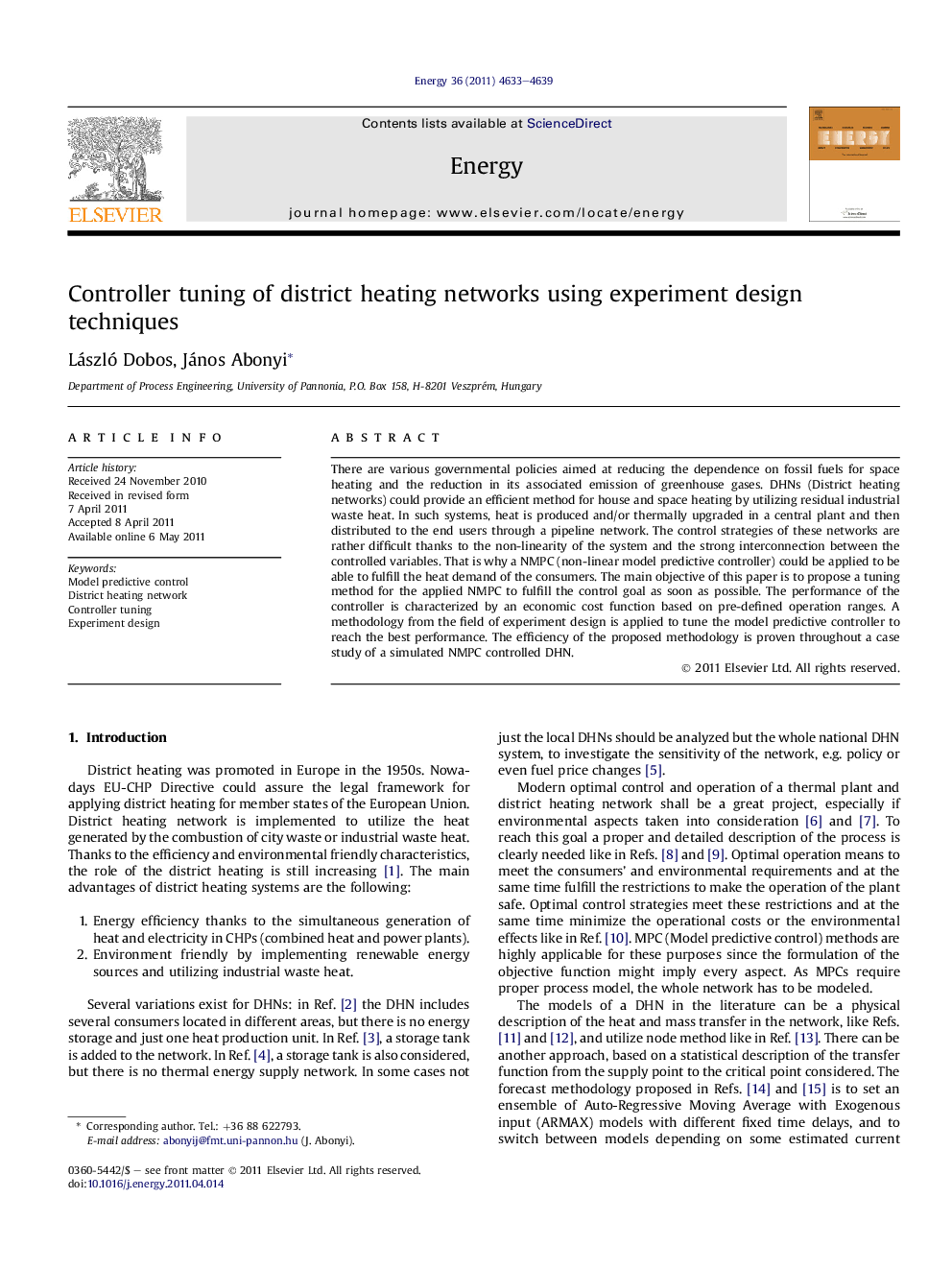| Article ID | Journal | Published Year | Pages | File Type |
|---|---|---|---|---|
| 1734230 | Energy | 2011 | 7 Pages |
There are various governmental policies aimed at reducing the dependence on fossil fuels for space heating and the reduction in its associated emission of greenhouse gases. DHNs (District heating networks) could provide an efficient method for house and space heating by utilizing residual industrial waste heat. In such systems, heat is produced and/or thermally upgraded in a central plant and then distributed to the end users through a pipeline network. The control strategies of these networks are rather difficult thanks to the non-linearity of the system and the strong interconnection between the controlled variables. That is why a NMPC (non-linear model predictive controller) could be applied to be able to fulfill the heat demand of the consumers. The main objective of this paper is to propose a tuning method for the applied NMPC to fulfill the control goal as soon as possible. The performance of the controller is characterized by an economic cost function based on pre-defined operation ranges. A methodology from the field of experiment design is applied to tune the model predictive controller to reach the best performance. The efficiency of the proposed methodology is proven throughout a case study of a simulated NMPC controlled DHN.
► To improve the energetic and economic efficiency of a DHN an appropriate control system is necessary. ► The time consumption of transitions can be shortened with the proper control system. ► A NLMPC is proposed as control system. ► The NLMPC is tuned by utilization of simplex methodology, using an economic oriented cost function. ► The proposed NLMPC needs a detailed model of the DHN based on the physical description.
